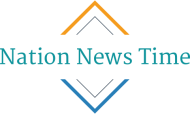
The dream of owning a home is shared by many, including physicians who have spent years (and all their savings) in medical school and training programs.
However, as good as the idea is, it’s not easy. Especially for doctors at the start of their careers, still dealing with the burden of student loans.
Doctor mortgage loans offer a potential solution for physicians that want to own a house. However, it’s important to know how it differs from the usual mortgage, and does the advantages outweigh the disadvantages.
What Are Doctor Mortgage Loans?
Doctor Mortgage Loans, also known as physician mortgage loans, are specifically tailored for medical professionals, including physicians, dentists, and residents. These loans come with certain features that set them apart from conventional mortgages.
Pros Of Doctor Mortgage Loans
- Low Down Payment: One of the primary advantages of Doctor Mortgage Loans is the ability to start with a minimal down payment. With conventional mortgage loans, saving up for the down payment is usually the biggest hurdle. That isn’t something you need to worry about with doctor loans.
- No Private Mortgage Insurance (PMI): Doctor Mortgage Loans often waive the requirement for PMI, even with a low down payment. This can result in a lower amount of monthly payment.
- Favorable Debt-to-Income Ratio: Physician loans often consider the debt-to-income (DTI) ratio differently. They can exclude student loan payments from the calculation. Making it easier for doctors with student debt to qualify for a home loan.
- Larger Loan Amounts: Doctor Mortgage Loans allow for higher balances compared to conventional loans.
- Quicker Homeownership: Doctor Mortgage Loans can provide a faster path to homeownership. Reduction in down payment and waiver or PMI can contribute to timely payments and subsequently, home ownership.
Cons of Doctor Mortgage Loans

Doctor Mortgage Loans sound too good to be true, and they unfortunately are. Some drawbacks of physician loans include:
- Higher Interest Rates: Doctor Mortgage Loans may have slightly higher interest rates compared to conventional mortgages. This could hike up the total loan amount toward the end.
- Limited Flexibility: Some Doctor Mortgage Loans have terms that may be less flexible than conventional mortgages.
- Closing Costs: To seal the deal on a mortgage, you have to pay closing costs which are about 2% to 5% of the total price of the home. Nullifying the advantage of low down payments.
What Are Conventional Mortgages?
Conventional mortgages are traditional home loans offered to homebuyers based on standard lending criteria. Their key characteristics include:
- Standard Down Payment: Conventional mortgages typically require a down payment of at least 20% of the home’s current value.
- PMI Requirement: When putting less than 20% down, conventional mortgage borrowers are usually required to pay PMI until they reach 20% equity in the home.
- Debt-to-Income Ratio: Conventional mortgages consider all debts, including student loans, when calculating the debt-to-income ratio.
- Competitive Interest Rates: Conventional mortgages often come with competitive interest rates, especially for borrowers with good credit scores.
Pros of Conventional Mortgages
Conventional mortgages offer several advantages that include:
- Lower Interest Rates: Conventional mortgages generally have lower interest rates compared to Doctor Mortgage Loans, leading to potential long-term savings.
- More Options: With conventional mortgages, borrowers have a wide range of lenders and loan products to choose from, providing greater flexibility in finding the best fit.
- Equity Building: Conventional mortgages offer the opportunity to build equity in the home from the start, which can be an asset for long-term financial planning.
Cons of Conventional Mortgages:
Conventional mortgages have their own set of drawbacks:
- Higher Down Payment: The significant down payment requirement can be a significant barrier for doctors since saving up for it can be challenging.
- Stricter DTI Ratio: Conventional mortgages take all debts into account, making it harder for doctors with high student loan debt to qualify.
What Should You Do?
Choosing between a Doctor’s Mortgage Loan and a Conventional Mortgage requires one to carefully consider one’s financial condition currently and down the line. Doctor Mortgage Loans can be an excellent option for homeownership with minimal upfront costs and flexibility in the DTI calculation. On the other hand, Conventional Mortgages may offer lower interest rates and more options but come with a higher down payment requirement and stricter DTI calculations.
It is advisable to think long-term and consider all aspects of personal finance before you make the final call. You can always speak to a mortgage consultant for a better opinion.
